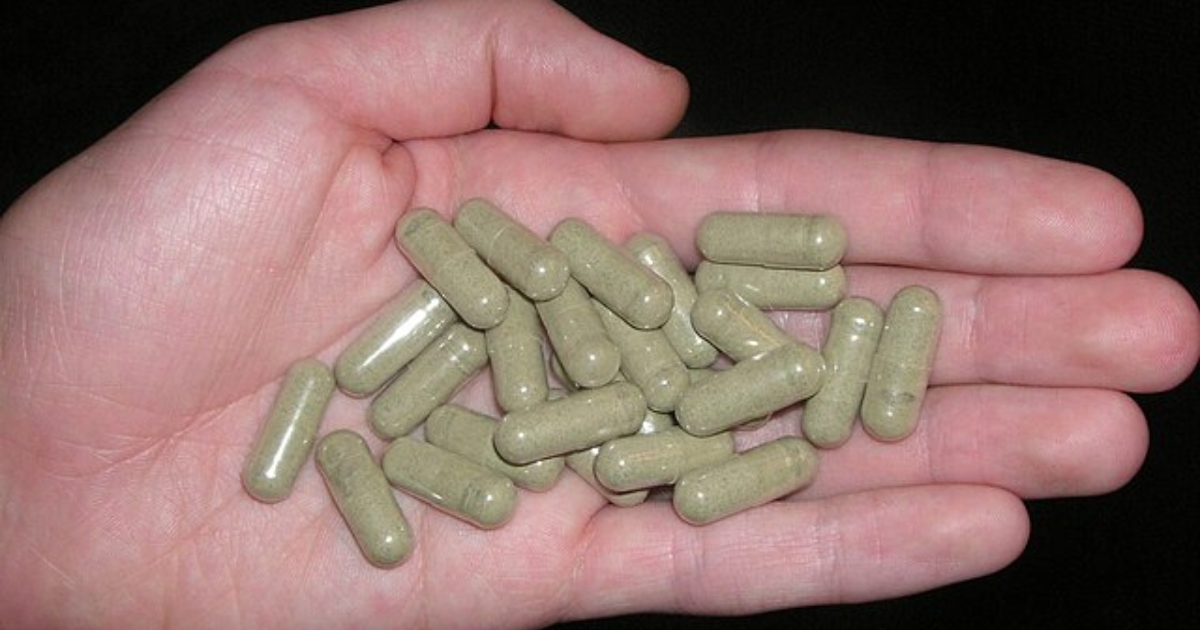When it comes to the best cognitive enhancers, the decision probably comes down to modafinil vs Adderall. Both have their advantages and disadvantages; benefits and risks. This article will tell you all about them.
What Is Modafinil?
Modafinil is a prescription medication primarily used to treat sleep disorders such as narcolepsy. Medical professionals classify modafinil as a eugeroic, meaning it promotes wakefulness and alertness without the stimulant effects commonly associated with traditional amphetamines.
Unlike Adderall, modafinil influences neurotransmitters like orexin, histamine, and norepinephrine to boost cognition and reduce fatigue.
Modafinil boosts focus and reduces daytime sleepiness, making it popular with students, professionals, and productivity seekers. However, it is still a controlled substance in the U.S., and its off-label use comes with risks, including potential side effects such as insomnia, headaches, and increased heart rate.
What Is Adderall?
Doctors prescribe Adderall, a stimulant composed of mixed amphetamine salts, to treat attention deficit hyperactivity disorder (ADHD) and narcolepsy. Adderall boosts dopamine and norepinephrine in the brain, improving attention, impulse control, and energy.
This makes it particularly effective for individuals with ADHD, as it helps regulate brain activity associated with focus and self-control.
Unlike modafinil, Adderall has a stronger potential for abuse and dependence due to its direct impact on the brain’s reward system. While it can be highly beneficial for those with medical conditions requiring stimulant treatment, misuse—especially in non-prescribed individuals—can lead to addiction, cardiovascular issues, and other serious health risks. Because of this, Adderall is addictive, and for that reason is classified as a Schedule II controlled substance in the U.S., meaning it has a high potential for abuse and dependence.
Get confidential help from our addiction treatment specialists in Orange County. Call to join our rehab program today!
Call 866-881-1184Key Differences Between Modafinil and Adderall
While both Modafinil and Adderall are used to enhance focus and wakefulness, they differ significantly in their mechanisms of action, effects, potential for addiction, and side effects.
Here’s how they compare:
- Mechanism of Action:
- Modafinil: Works as a eugeroic (wakefulness-promoting agent) by affecting neurotransmitters like orexin, histamine, and norepinephrine. It has a more indirect effect on dopamine levels, reducing its stimulant-like properties.
- Adderall: A central nervous system stimulant that directly increases dopamine and norepinephrine levels, leading to heightened alertness, focus, and energy.
- Medical Uses
- Modafinil: Doctors primarily prescribe modafinil for narcolepsy, shift work sleep disorder, and obstructive sleep apnea to prevent excessive daytime sleepiness.
- Adderall: Physicians use Adderall to treat ADHD and narcolepsy, focusing on improving focus, impulse control, and hyperactivity in individuals with ADHD.
- Stimulant vs. Eugeroic
- Modafinil keeps users awake for 12-15 hours without a significant crash, making it ideal for those needing extended mental endurance.
- Adderall is a potent stimulant that increases heart rate, blood pressure, and dopamine release, making it more effective but also riskier in terms of dependency.
- Potential for Abuse and Addiction
- Modafinil: Modafinil carries a lower potential for abuse because it does not significantly increase dopamine levels like Adderall.
- Adderall: Adderall carries a high risk of abuse and addiction due to its amphetamine content and dopamine-boosting effects. The U.S. classifies it as a Schedule II controlled substance because its strong effects on dopamine can lead to dependence and withdrawal symptoms.
- Side Effects
- Modafinil: Common side effects include headaches, nausea, insomnia, anxiety, and dizziness. It is generally well-tolerated but may cause some cardiovascular strain.
- Adderall: Can cause increased heart rate, high blood pressure, anxiety, appetite suppression, and potential mood swings. Long-term use can lead to more severe health concerns, including addiction and withdrawal symptoms. Adderall can cause depression as well.
- Duration of Effects
- Modafinil: Lasts 12–15 hours, making it a long-acting wakefulness enhancer.
- Adderall: Effects vary depending on the formulation—Adderall IR (Immediate Release) lasts 4–6 hours, while Adderall XR (Extended Release) can last up to 12 hours.
- Legal Classification
- Modafinil: Schedule IV controlled substance, meaning it has some risk of misuse but a lower potential for addiction.
- Adderall: Schedule II controlled substance, meaning it has a high potential for abuse and is more strictly regulated.
Choosing between Modafinil and Adderall depends on the specific condition being treated and individual health factors. While Adderall is more effective for ADHD, Modafinil is often preferred for wakefulness disorders like narcolepsy due to its lower risk of addiction. However, Modafinil has also been prescribed off-label for ADHD. Both drugs should only be used under medical supervision to prevent misuse and adverse effects.
Looking for quality substance abuse treatment that’s also affordable? South Coast accepts most major insurance providers. Get a free insurance benefits check now.
Check Your CoverageEffects on Cognitive Performance: Modafinil vs Adderall
Both modafinil and Adderall are considered cognitive enhancers, but their mechanism of action and associated effects are different.
Modafinil improves focus and attention in a smoother, more sustained way, but at the same time, does not have the marked effect on attention that Adderall can have. Adderall provides stronger and more immediate enhancements in focus, making it particularly beneficial for those with ADHD. Its stimulant effects lead to increased alertness, rapid task-switching ability, and sustained concentration, which can make it more potent for short-term cognitive tasks.
While Adderall enhances motivation and drive, because it is an amphetamine, it may also increase impulsivity or cause overconfidence in decision-making.
The biggest advantage of modafinil vs Adderall is that modafinil promotes wakefulness far more effectively. Modafinil keeps users awake for 12-15 hours without a crash, making it ideal for extended mental endurance.
Modafinil vs Adderall: What’s Better?
Modafinil is better for those seeking long-lasting focus and wakefulness without overstimulation, making it a good option for professionals, students, and those managing sleep disorders. Adderall is more effective for individuals with ADHD, providing stronger cognitive benefits in terms of attention, memory, and motivation. However, Adderall stays in your system for less time than modafinil. It also carries a higher risk of addiction and side effects.
While both drugs can enhance cognitive performance, they should only be used under medical supervision to avoid potential health risks and dependency.
Misuse, Dependence, and Withdrawal: Modafinil vs Adderall
Both Adderall and Modafinil carry the potential for misuse, but they differ significantly in terms of addiction risk, dependence, and withdrawal symptoms. Some people use modafinil off-label for cognitive enhancement, but it carries a lower misuse potential than Adderall because it does not produce the same euphoric high or rapid dopamine spikes.
Adderall, on the other hand, has a high potential for abuse, especially among students and professionals looking to improve focus or energy levels. Because it directly increases dopamine levels in the brain, it can create a reinforcing effect that leads to habitual use, dependency, and Adderall withdrawal symptoms. For this reason, some seek out natural alternatives to Adderall.
Addiction Treatment in California
If you or a loved one are struggling with addiction but wonder how long addiction treatment takes or have other questions, call us at 866-881-1184 or contact us here. Our highly qualified staff will be happy to help give you an idea on what to expect from your addiction recovery timeline, help verify your insurance, and assist with any other questions you may have about substance abuse recovery.









